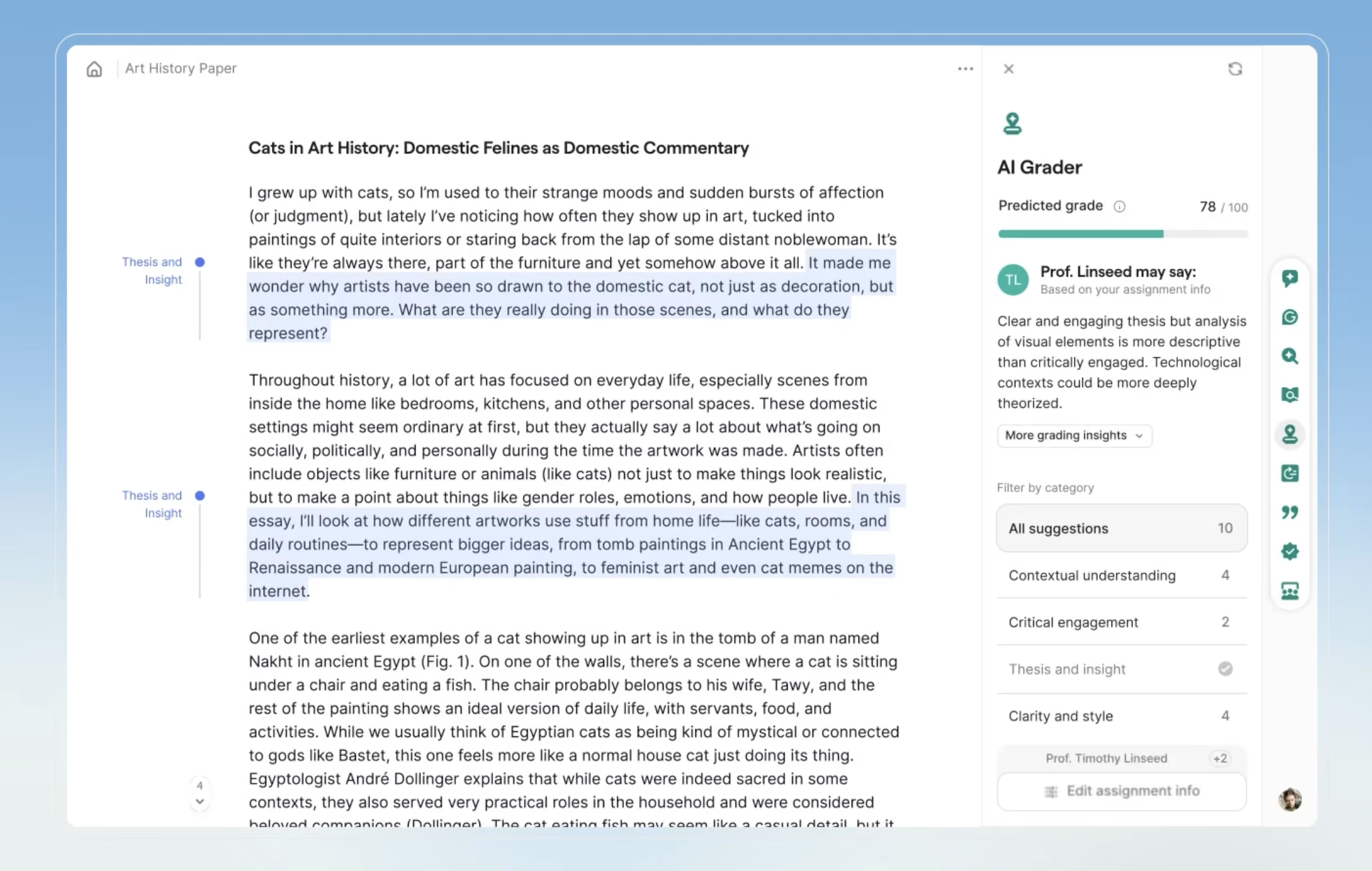Grammarly's AI Agent Claims Ability to Predict A-Grade, Human-Quality Papers
This bold declaration comes at a time when the lines between human and AI-generated text are increasingly blurred. For students, professionals, and content creators alike, the idea of an AI tool that can guide them toward producing expert-level, top-tier work is, well, pretty compelling. It raises immediate questions about the future of writing, education, and even what we consider "original" thought. How can an AI truly grasp the nuances of an "A" grade, especially when human grading itself can be subjective? It's a fascinating development, and one that demands a closer look.
Unpacking the "A Paper" Prediction
This capability likely leverages large language models (LLMs) trained on vast datasets of high-quality, expert-written content across diverse fields. The AI would learn the patterns, structures, and stylistic elements that distinguish truly excellent writing from merely good or adequate prose. It's about identifying the hallmarks of deep understanding and effective communication. For instance, it might flag areas where an argument lacks sufficient depth, suggest more authoritative sources, or even recommend rephrasing a complex idea for greater clarity, all while maintaining a natural, human-like flow. It's a far cry from the red squiggly lines of yesteryear.
The Technology Underpinning the Claim
- Contextual Analysis: Understanding the specific subject area and tailoring feedback accordingly. A history paper requires different stylistic elements than a scientific report.
- Argumentation & Logic: Evaluating the strength of claims, the validity of supporting evidence, and the logical flow of ideas.
- Tone & Voice: Assessing whether the writing maintains an authoritative, knowledgeable, and appropriate tone for the intended audience and purpose.
- Sophistication of Language: Moving beyond basic vocabulary to suggest more precise, impactful, or academic phrasing where suitable.
This isn't a simple checklist. It's a dynamic, adaptive system that aims to mimic the critical eye of an experienced editor or professor. And that's a pretty big deal, isn't it?
Broader Implications for Writing and Education
The implications of Grammarly's claim are far-reaching, particularly for educational institutions and professional content creation. In academia, the tool could become an invaluable resource for students striving for excellence, offering real-time, expert-level guidance. But it also raises significant questions about academic integrity and the very definition of learning. If an AI can guide a student to an "A," what does that mean for the student's own development of critical thinking and writing skills? Educators are already grappling with AI detection, and this development adds another layer of complexity.
For professional writers, marketers, and researchers, an AI agent capable of ensuring expert-level output could be a game-changer for efficiency and quality control. Imagine a busy professional who needs to draft a white paper on a complex topic. Grammarly's AI could act as a highly skilled co-pilot, ensuring the final product is not only accurate but also compelling and authoritative. This could democratize access to high-quality content creation, allowing smaller teams or even individuals to produce work that rivals that of larger, well-resourced organizations. It's a productivity boost, for sure.
Challenges, Ethical Debates, and the Road Ahead
Furthermore, the reliance on such tools could inadvertently stifle the development of fundamental writing skills. If students become overly dependent on AI to refine their work, will they truly learn to identify and correct their own weaknesses? And what about the potential for bias in the AI's training data, which could inadvertently perpetuate certain writing styles or perspectives over others? These are not trivial concerns. The road ahead for AI in writing is undoubtedly paved with innovation, but also with ongoing debates about authenticity, intellectual property, and the evolving role of human creativity. It's a journey we're all on together, and the next few years will certainly be interesting to watch.
